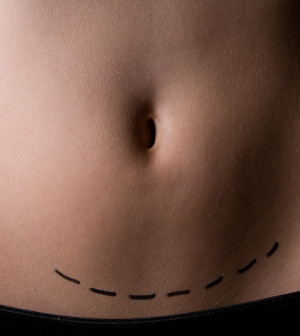- FDA Approves New Antibiotic Against UTIs
- New School Lunch Rules Target Added Sugars, Salt
- Dairy Cows Moved Across State Lines Must Now Be Tested for Bird Flu
- TikTok Riddled With Misleading Info on Health: Study
- Emulsifier Chemicals Are Everywhere in Foods. Could They Raise Diabetes Risk?
- Opioids During Pregnancy May Not Raise Psychiatric Risks for Offspring
- Could Heartburn Meds Raise Your Migraine Risk?
- Drug, Alcohol Abuse Goes Untreated in Many Ex-Prisoners
- Watchdog Group Says U.S. Food Recalls Rose Again Last Year
- Genes Could Mix With Pesticide Exposure to Raise Parkinson’s Risk
Could People’s Well-Being Affect Likelihood of Kidney Donation?


Americans are more likely to donate a kidney to a stranger if they live in a state or region where there are high levels of well-being, according to a new study.
The finding regarding what’s known as “altruistic kidney donation” could help experts find ways to increase living kidney donations, according to the study, which was published online recently in the journal Psychological Science.
“Anywhere from 11 percent to 54 percent of adults say they’d be willing to consider altruistic kidney donation, but only a tiny fraction of them actually become donors,” study senior author Abigail Marsh, a psychological scientist at Georgetown University, said in a journal news release.
These findings suggest that higher levels of well-being might be a factor that “nudges” some people into actually donating a kidney, she said.
The researchers analyzed national data and found that states where larger percentages of people donated kidneys to strangers tended to have higher levels of well-being. This link remained when the states were combined into nine geographic regions, and when other factors — such as age, education, income and mental and physical health — were taken into account.
“You’d be amazed by the responses some donors get from those who learn about their donation — people who see them as weird or even crazy for doing something so far outside the norm as giving away an internal organ to a stranger,” Marsh said. “These data help to show that there are understandable, normal psychological mechanisms that lead to this kind of behavior, uncommon as it is.”
The findings could also help increase living kidney donations, she said.
“Kidney disease is now the eighth leading cause of death in the United States, and living kidney donations are the best hope for restoring people to health who have kidney disease,” Marsh said. “Understanding the dynamics that lead to this kind of donation might help increase the number of donations, which currently are in decline.”
More information
The National Kidney Foundation has more about living kidney donation.
Source: HealthDay
Copyright © 2024 HealthDay. All rights reserved.










